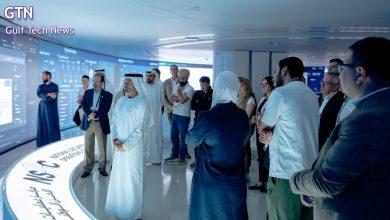TOO MUCH AI CONTROL NOW CAN BE A RISKY BUSINESS

Tech entrepreneur Rashit Makhat says the human touch is still vital to reach the best decisions
As artificial intelligence becomes more embedded in everyday business in the MENA region, what are the dangers of giving it too much control?
While AI is dramatically speeding up workflows and delivering big efficiencies, experts are warning that relying on it too heavily, too soon, could backfire.
Recent insights show that AI works best as a support tool, not a decision-maker. When businesses let machines steer strategy, hiring, or customer service without human oversight, the risks are real.
Tech investor and entrepreneur, Rashit Makhat, is among those urging caution on the grounds that, while AI can crunch data and offer options in seconds, it doesn’t yet understand people, context, or consequences.
“In today’s business environment, the human touch matters more than ever,” says Makhat, Director and co-founder of UAE tech venture company, Scalo Technologies. “AI will transform business, make companies faster, smarter, and more efficient, and no-one wants to be left behind.
“But while AI can draft entire business plans in moments, unlike humans, it doesn’t think. It doesn’t feel. It doesn’t understand people. If businesses forget that, they could be heading for trouble”.
The idea of machines running entire industries is not new. But what are the consequences, when we take AI out of the lab and into the boardroom?
Harvard Business Review watched a series of executive team meetings at an $85 million revenue Austrian company. They found that what makes AI a valuable team member is that it helps execs see more options. And it provides information quickly to speed up decisions.
“AI worked best when guided by humans, supporting but not replacing, decision-making,” said Makhat. “The best ideas came when the AI prompted executives to think differently. When they did, they made better choices. AI wasn’t the leader – it was the assistant.”
The experiment can’t disguise AI’s broader impact on corporate decision-making. Some experts predict it could soon run entire departments, or even whole companies. But problems can occur when people treat AI like it’s already in charge.
In February, three lawyers in a lawsuit against Walmart were fined $5,000 by a U.S. judge in Wyoming for citing fake cases generated by AI. The judge said they had a duty to check their sources were real.
Reuters also reported that over the past two years, more U.S. judges have raised concerns or disciplined lawyers for using AI-generated cases and quotes in court.
“The most successful companies aren’t those that rush to adopt every new technology,” says Makhat. “They’re the ones that mix innovation with human intelligence. Startups, in particular, must be extra careful. AI should sharpen human judgment, not take its place.”




